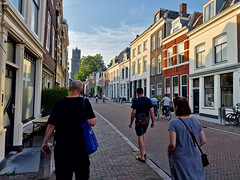 Bush declared Operation Enduring Freedom in October of 2001, but too often reading the news you could have forgotten entirely that we were still at war. Yet it went on, day by brutal day, the list of Western soldiers killed and mourned by name steadily growing. But it has now sprung very much into focus. WikiLeaks‘ recent release of thousands of classified documents has revealed a much expanded sense of the tragedy, the instances of friendly fire, the civilians dead, the steadily growing hatreds, the despair on both sides.
Bush declared Operation Enduring Freedom in October of 2001, but too often reading the news you could have forgotten entirely that we were still at war. Yet it went on, day by brutal day, the list of Western soldiers killed and mourned by name steadily growing. But it has now sprung very much into focus. WikiLeaks‘ recent release of thousands of classified documents has revealed a much expanded sense of the tragedy, the instances of friendly fire, the civilians dead, the steadily growing hatreds, the despair on both sides.
The Guardian has made it a major source for multiple stories since the news first broke, giving it a majority of space on the landing page and releasing detailed information and spreadsheets with the actual data. Der Spiegel has done something similar. The New York Times? Today there is one major story, “Document Leak May Hurt Efforts to Build War Support.” There is nothing about civilian, or even friendly fire, casualties here, rather a principal focus on Afghan and Pakistani unreliability.
I would disagree with the NY Times Op-Ed writer Andrew Exum that this is no big deal and we have learned nothing new. These documents offer an unparalleled view of what is happening on the ground and its true costs to everyone within Afghanistan’s borders. Of course, this immeasurable human cost is multiplied in the daily suffering of refugees.
The camps along the borders in Pakistan overflow with Afghans trapped in strange limbo, with very little hope of returning home, and less hope for any kind of future. And the true tragedy of Afghanistan is that many of these camps have been in continuous use since the 70s, and the USSR’s war in Afghanistan with all its parallels to Vietnam. Given a guerrilla was like a fish in water, to counter insurgency their strategy was to simply drain the water.
What wouldn’t any of us do to escape a world with so little chance for a future?
[also posted on www.brightwide.com]



 Oscar Grant was shot in the back of the head by a police officer on New Year’s Day 2009. He was lying face down on the ground at an Oakland train station. The shooting was captured on multiple mobile phones and is all over youtube, you can see some of the footage
Oscar Grant was shot in the back of the head by a police officer on New Year’s Day 2009. He was lying face down on the ground at an Oakland train station. The shooting was captured on multiple mobile phones and is all over youtube, you can see some of the footage 









